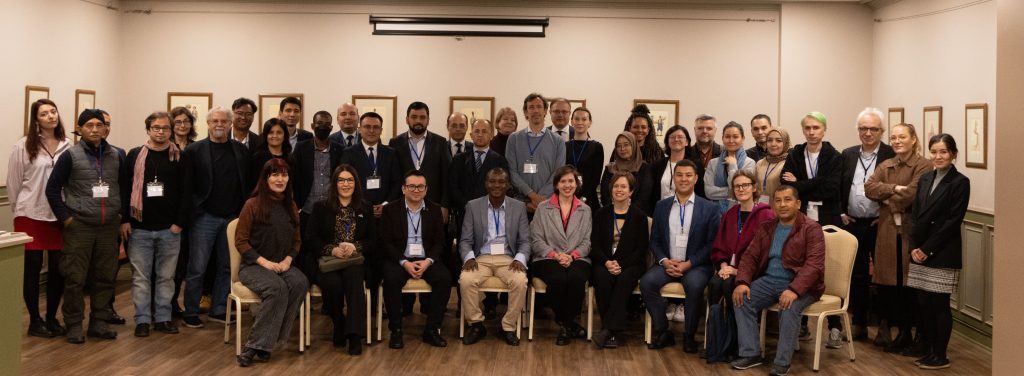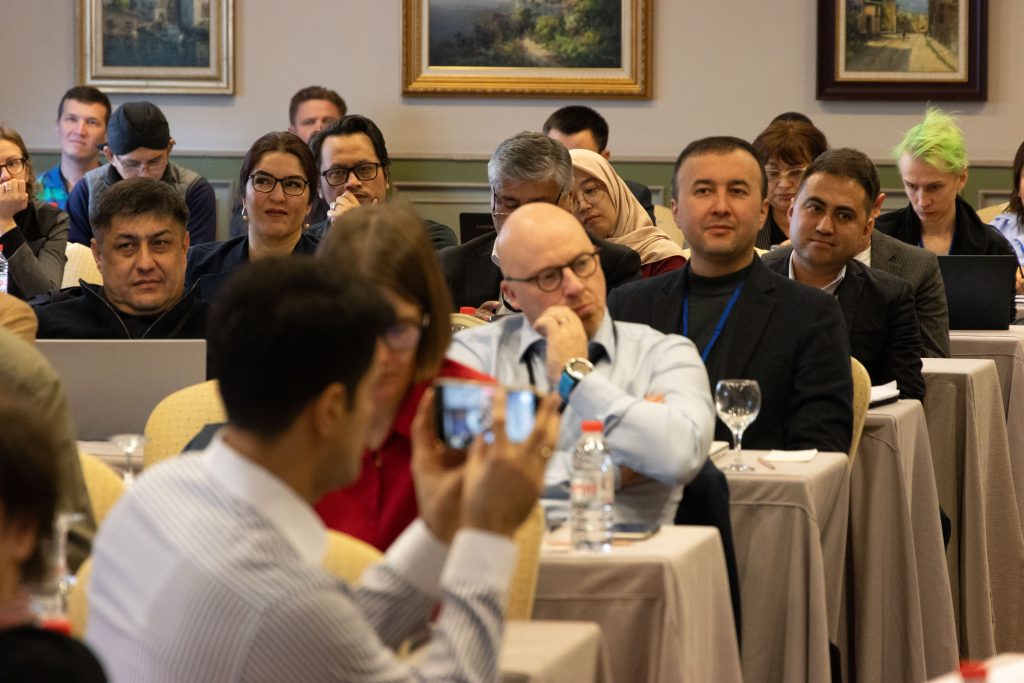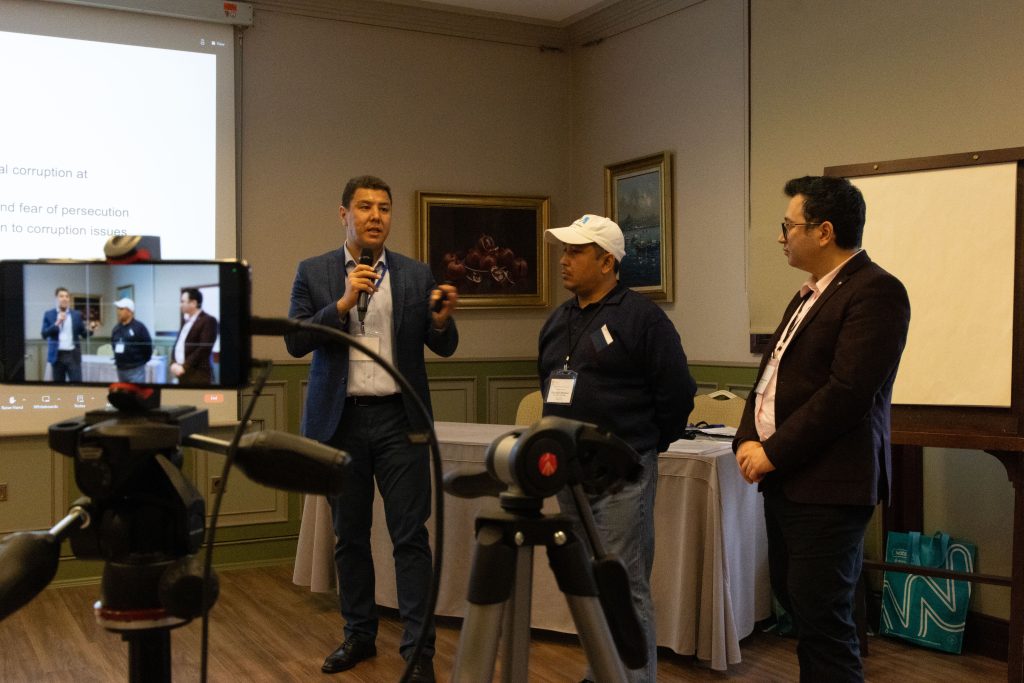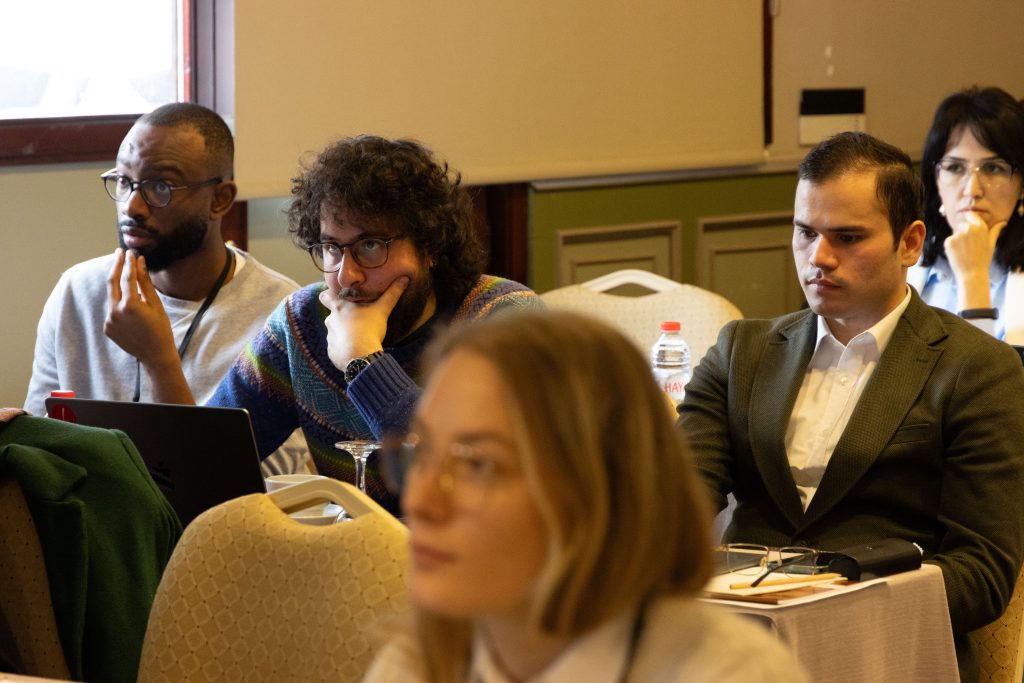Information about the project news, events and dissemination activities
Press release

MARS project kick-off event took place on February 1-2, 2024
The launch of the project “MARS: Non-Western Migration Regimes in a Global Perspective” (MARS) took place in Istanbul on February 1-2, 2024. The project kick-off meeting brought together the researchers from all project partners to discuss the project idea, the implementation process and the researchers’ interests. 10 EU-based academic institutions and 13 academic and non-academic partners from various regions of the world participated at the kick-off meeting of the project. The launch event took place in a hybrid mode – in person in Istanbul, Turkey and online.
During the event, the project coordinating team at Lund University explained the project rationale and identified the project management structures and processes. The project officer from the European Commission’s Research Executive Agency also joined the meeting online and explained the rules and guidelines of conducting MSCA staff exchanges projects to all project partners. On the second day of the meeting, the participants were briefed on the migration issues, patterns and tendencies in various parts of the world included in the MARS project idea – from Latin America and North and West Africa, to Central Asia and East and South East Asia. The presentations lead to discussions on the theoretical and methodological state of the art in the migration studies and migration policy making. This helped to shape the project research directions going forward.
“MARS: Non-Western Migration Regimes in a Global Perspective” is a project funded by the European Commission’s Horizon Europe MSCA Staff Exchanges call HORIZON-MSCA-2022-SE-01 (project number 101130177). The Staff Exchanges action funds short-term international and inter-sectoral exchanges of staff members involved in research and innovation activities of participating organisations.[1] The “MARS” project, launched on February 1st, 2024, will last for four years and is scheduled to end on 31 January 2028. “MARS: Non-Western Migration Regimes in a Global Perspective” is a research and staff exchange programme intended to enhance the scientific understanding about global, regional and national governance of migration and mobilities and thereby contribute to the global and national efforts to facilitate safe, regular and orderly migration.
This will be made possible thanks to a multi-sited, interdisciplinary and multisectoral research and staff exchange programme involving 10 leading European universities namely Lund University, Leiden University, University of Helsinki, University of Zurich, University of Salzburg, Aalborg University, Marmara University, Vilnius University, University of Eastern Finland and University of Bristol and 13 associated partners operating in Central Asia, Middle East, North and West Africa, Southeast Asia, East Asia, the Gulf States and Latin America, namely the General Prosecutor’s Office of Uzbekistan, Nazarbayev University, Uzbeki-stan’s Agency of External Labour Migration, Kurultai Research and Consulting, Society for the Protection of Uzbek Women’s Rights in Turkey, American University in Cairo, Vatandoshlar Public Foundation, University of Ghana, University of Gadjah Mada, University of Tsukuba, Hamad Bin Khalifa University and Universidad Torcuato Di Tella and “Migrant INFO” LLC.
[1] European Commission – Staff Exchanges | Marie Skłodowska-Curie Actions (europa.eu).
Press-Release

MARS Workshop on Migration Methodologies in Non-Western Contexts
The MARS Workshop, titled “Methodological and Theoretical Approaches to Studying Migration and Mobilities in Non-Western Migration Locales,” convened in Istanbul on February 3-4, 2024. It brought together both experienced and early stage researchers of the MARS project to discuss methodologies and theories relevant to the study of migration in non-Western contexts. This event served as a platform for enhancing the understanding of migration dynamics in regions often overlooked in global research.
The workshop opened with Anna Jordanova’s session, which addressed the formulation of main research questions, hypotheses, and the selection of methodologies and theories within social sciences. This set the stage for the day’s discussions on robust research design. Selmin Kaska from Marmara University in Turkey spoke on conducting qualitative research, offering insights on preparation, execution, and post-fieldwork processes. This session provided valuable guidance for researchers handling the complexities of qualitative methods. The workshop continued with Anna Liisa Heusala’s presentation on de-colonization in the study of non-Western. The morning session concluded with Aksana Ismailbekova’s talk on increasing visibility in academia. She discussed strategies for researchers from non-Western locales to enhance their presence in the global academic community. Berdymyrat Ovezmyradov from Turkmenistan highlighted the importance of scientometrics for researchers. This was followed by Gülfer Ihlamur Öner’s session on incorporating a gender perspective into research, and how researchers can be aware of the gender biases, particularly when dealing with female research participants. The final session of the day featured Dilaver Khamzaev (Academy of the General Prosecutors Office of Uzbekistan), who explored the use of digital technologies, particularly artificial intelligence, in research.

The second day began with Rustam Urinboyev and Sherzod Eraliev (Lund University), focusing on fieldwork with difficult-to-access groups and topics. They discussed approaches for researchers tackling sensitive or marginalized populations. Michelle von Dach and Meltem Sancak (University of Zurich) addressed the methodological and ethical aspects of research across different contexts, highlighting the challenges and considerations for ethical research practices. Kobil Ruziev (University of the West of England Bristol) presented on applied quantitative research methods, offering attendees practical tools for data-driven studies. Sanjarbek Toshbaev, representing the International Organisation for Migration in Uzbekistan, discussed the ways the IOM organises the data collection, analysis, and how they translate the empirical evidence into the policymaking. The workshop resumed with Peter Finke (University of Zurich), who led a session on the institutional analysis, while particularly focusing on the economic institutions and how to apply the institutional analysis in social science research. This was followed by Slavomir Horak from the Charles University Prague, focusing on the case study methodology. Mr Horak’s presentation preceded the concluding session by Aksana Ismailbekova on ethnography, participant observation, and interviews, which are the essential methods for in-depth qualitative research.

The MARS Workshop was a comprehensive experience for the project participants, offering a mix of theoretical insights and practical guidance. By fostering a collaborative environment, this workshop aimed to enhance the methodological rigor and theoretical breadth of migration studies in non-Western contexts, by also providing a platform for networking for the MARS project researchers.
